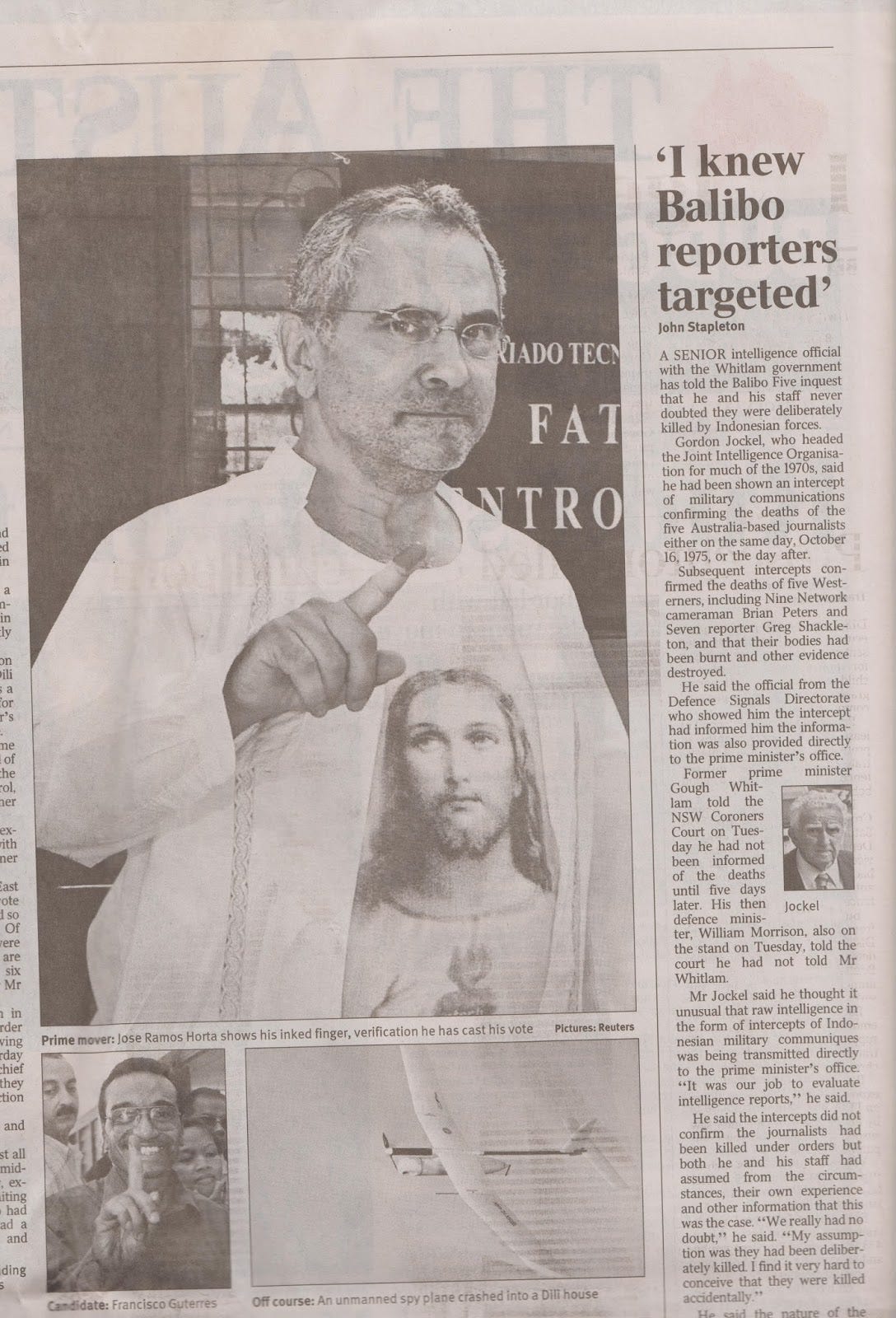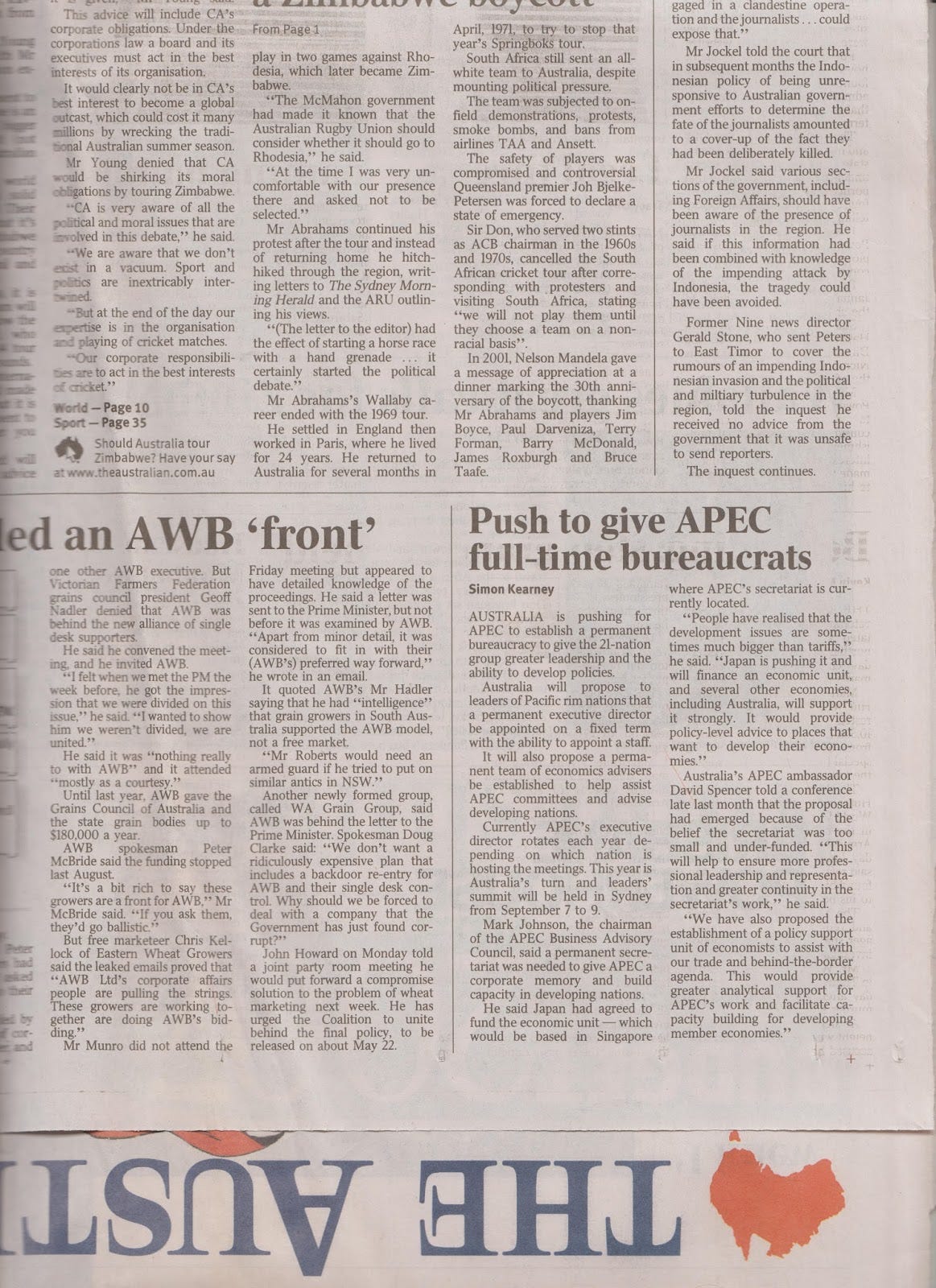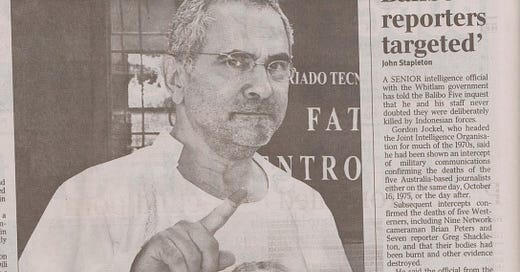'I knew Balibo reporters targeted', The Australian, 10 May, 2007.


`I knew Balibo reporters targeted': [1 All-round Country Edition]
Stapleton, John. The Australian [Canberra, A.C.T] 10 May 2007: 2.
Abstract
Mr [Gordon Jockel] said he thought it unusual that raw intelligence in the form of intercepts of Indonesian military communiques was being transmitted directly to the prime minister's office. "It was our job to evaluate intelligence reports," he said.
He said the intercepts did not confirm the journalists had been killed under orders but both he and his staff had assumed from the circumstances, their own experience and other information that this was the case. "We really had no doubt," he said. "My assumption was they had been deliberately killed. I find it very hard to conceive that they were killed accidentally."
He said the nature of the circumstances and the fact none of them had escaped added to his assumption the journalists had been killed under orders. "TheIndonesians were engaged in a clandestine operation and the journalists ... could expose that."
Full Text
A SENIOR intelligence official with the Whitlam government has told the Balibo Five inquest that he and his staff never doubted they were deliberately killed by Indonesian forces.
Gordon Jockel, who headed the Joint Intelligence Organisation for much of the 1970s, said he had been shown an intercept of military communications confirming the deaths of the five Australia-based journalists either on the same day, October 16, 1975, or the day after.
Subsequent intercepts confirmed the deaths of five Westerners, including Nine Network cameraman Brian Peters and Seven reporter Greg Shackleton, and that their bodies had been burnt and other evidence destroyed.
He said the official from the Defence Signals Directorate who showed him the intercept had informed him the information was also provided directly to theprime minister's office.
Former prime minister Gough Whitlam told the NSW Coroners Court on Tuesday he had not been informed of the deaths until five days later. His then defence minister, William Morrison, also on the stand on Tuesday, told the court he had not told Mr Whitlam.
Mr Jockel said he thought it unusual that raw intelligence in the form of intercepts of Indonesian military communiques was being transmitted directly to theprime minister's office. "It was our job to evaluate intelligence reports," he said.
He said the intercepts did not confirm the journalists had been killed under orders but both he and his staff had assumed from the circumstances, their own experience and other information that this was the case. "We really had no doubt," he said. "My assumption was they had been deliberately killed. I find it very hard to conceive that they were killed accidentally."
He said the nature of the circumstances and the fact none of them had escaped added to his assumption the journalists had been killed under orders. "TheIndonesians were engaged in a clandestine operation and the journalists ... could expose that."
Mr Jockel told the court that in subsequent months the Indonesian policy of being unresponsive to Australian government efforts to determine the fate of thejournalists amounted to a cover-up of the fact they had been deliberately killed.
Mr Jockel said various sections of the government, including Foreign Affairs, should have been aware of the presence of journalists in the region. He said if this information had been combined with knowledge of the impending attack by Indonesia, the tragedy could have been avoided.
Former Nine news director Gerald Stone, who sent Peters to East Timor to cover the rumours of an impending Indonesian invasion and the political and miltiary turbulence in the region, told the inquest he received no advice from the government that it was unsafe to send reporters.
The inquest continues.



